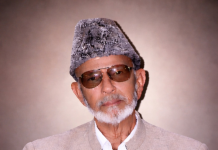By Muhammad Mohsin Iqbal
In a parliamentary democracy, elected representatives are entrusted with the legislative duties of debating and passing laws, a critical process governed by established rules and regulations. Among these, quorum holds special significance as it determines the minimum number of members required to be present in the House to conduct its business. Quorum ensures the legitimacy, accountability, and efficiency of parliamentary systems worldwide by mandating sufficient participation for decision-making.
The primary purpose of quorum is to guarantee that decisions reflect the involvement of a reasonable number of representatives, preventing undue influence by a small group. It serves as a safeguard against decisions being made without adequate deliberation or oversight, upholding democratic principles and the integrity of legislative processes. Ensuring quorum is generally seen as the responsibility of the ruling party or coalition, as they manage governance and legislative continuity. However, opposition parties frequently raise quorum issues as a political strategy to highlight inefficiencies, exert pressure on the government, or emphasize key issues. Occasionally, even government members point out quorum deficiencies, particularly when dissatisfied or during internal disagreements or during session requisite by Opposition.
According to Article 55(2) of the Constitution of Islamic Republic of Pakistan and the Rule 5 of the Rules of Procedure and Conduct of Business in the National Assembly, 2007, the quorum is one-fourth of the total membership of the National Assembly (84 out of 336 members). If quorum is lacking, the Speaker must suspend proceedings until the required number is present or adjourn the session if it cannot be met. In Indian Constitution, Article 100 is the power of the Houses to act notwithstanding the absence of a quorum. The Indian Constitution specifies that one-tenth of the total membership of the House should be present to constitute a quorum. According to the 41(1) Standing Orders of the House of Commons, the United Kingdom requires 40 members in the House of Commons, including the Speaker.
In the U.S. House of Representatives, a quorum is the minimum number of members required to conduct business, as specified in Article I, Section 5 of the U.S. Constitution, which states that a majority of each House constitutes a quorum. A quorum is generally assumed to exist unless challenged by a member, at which point a quorum call may be ordered to verify the count. While certain activities, such as debates, can occur without a quorum, voting on legislation requires one. According to Section 39 of the Australian Constitution, the quorum is one-third of the total number of members in the Australian House of Representatives, while in the Canadian House of Commons, the quorum is 20 members, including the Speaker (According to Section 48 of the Constitution Act, 1867).
Quorum requirements in several Asian and African nations further illustrate diverse practices. In the Malaysian House of Representatives (Dewan Rakyat), the quorum is the minimum number of members required to conduct business. According to Standing Orders of the Dewan Rakyat 13. (1), the quorum is 26 members, including the Speaker. Singapore sets quorum at one-quarter of the total membership. In the Parliament of Sri Lanka, the quorum is the minimum number of members required to conduct its business. According to Article 73 of the Constitution of Sri Lanka and the Standing Orders of Parliament, the quorum is 20 members, including the Speaker. The quorum of the Senate or of the House of Representatives shall be one-third of all the members of the legislative house concerned according to the Section 54(1) of the Constitution of Nigeria.
According to Article 96 of the Turkish Constitution, the Grand National Assembly of Turkey shall convene with at least one-third of the total number of members for all its affairs, including elections it holds. Unless otherwise stipulated in the Constitution, the Grand National Assembly of Turkey shall take decisions by an absolute majority of those present; however, the majority for decision can, under no circumstances, be less than one plus a quarter of the total number of members. In the Jatiya Sangsad (National Parliament) of Bangladesh, the quorum is 60 members, including the Speaker, according to Article 75(2) of the Constitution of Bangladesh.
In the French National Assembly, there is no fixed quorum required for regular debates or general proceedings. However, for certain decisions, such as passing legislation or constitutional amendments, specific quorum rules apply. For example, in the case of constitutional amendments under Article 89 of the French Constitution, a three-fifths majority of both houses of Parliament (National Assembly and Senate) is required during a joint session in Congress.
According to the Rule 45 of Rules of Procedure of the German Bundestag and Rules of Procedure of the Mediation Committee, a quorum of the Bundestag shall exist when more than one half of its Members are present in the Chamber. Similarly, the same rule follows in the Russian State Duma i.e. The procedural provisions for the sessions of each of the Chambers of the Federal Assembly are established by their Standing Orders. Of greatest importance in this respect is the matter of quorum, ensuring legitimacy to the sessions and the activities of the Chambers. According to the Standing Orders of the Council of Federation and the State Duma their sessions are considered competent, if they are attended by more than a half of the total number of Members of the Council of Federation and the Deputies of the State Duma.
Quorum requirements across countries highlight variations in legislative procedures and governance principles. Pakistan and Singapore both set their quorum at one-fourth of the total membership, reflecting similar legislative frameworks for ensuring parliamentary presence. India, with its one-tenth quorum rule, allows for greater flexibility in legislative functioning compared to Pakistan and Singapore. Countries like the U.S., Germany, and Russia emphasize the presence of a majority for business, demonstrating stricter enforcement for legislative legitimacy. The U.K. and Canada, by contrast, have relatively lower quorum thresholds (40 and 20 members, respectively), signifying a pragmatic approach to accommodate smaller parliamentary settings or expedite proceedings.
In other countries, the quorum diverges based on historical, legal, and structural considerations. Malaysia and Bangladesh emphasize moderate thresholds (26 and 60 members), ensuring sufficient representation while avoiding excessive disruptions. Turkey’s nuanced quorum system accounts for both attendance and decision-making thresholds, reflecting a dual-layered approach to parliamentary integrity. Conversely, France lacks a fixed quorum for regular debates, relying instead on specific rules for critical decisions, like constitutional amendments. These diverse practices illustrate how nations balance legislative efficiency and accountability through their quorum rules, tailored to their unique political and constitutional needs.
In Pakistan, quorum deficiencies not only disrupt legislative business but also squander public funds allocated to parliamentary sessions. Strengthening enforcement of attendance rules, introducing digital attendance tracking, and penalizing absenteeism could ensure greater accountability. Furthermore, incentivizing consistent member participation and fostering a culture of responsibility can improve legislative effectiveness and prevent waste of resources.
Quorum is more than a procedural requirement; it embodies accountability, democratic representation, and the legitimacy of legislative processes. While the ruling party is primarily responsible for maintaining quorum, the opposition’s role in holding the government accountable is crucial. However, using quorum as a political tool to disrupt proceedings undermines the institution’s credibility. For Pakistan, the way forward lies in learning from global practices, addressing systemic challenges, and prioritizing national interest over partisan agendas. A robust parliamentary framework ensures that elected representatives fulfill their duties, upholding the trust of the electorate and the principles of democracy.

















